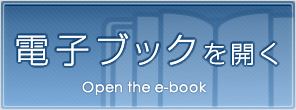「人道研究ジャーナル」創刊号 page 14/216
このページは 「人道研究ジャーナル」創刊号 の電子ブックに掲載されている14ページの概要です。
秒後に電子ブックの対象ページへ移動します。
「電子ブックを開く」をクリックすると今すぐ対象ページへ移動します。
概要:
Journal of Humanitarian Studies Vol. 1, 2012Special FeatureThe IFRC: Saving lives, changing minds.Today and tomorrow.Bekele Geleta (1)About the International Federation of Red Cross and Red Crescent S....
Journal of Humanitarian Studies Vol. 1, 2012Special FeatureThe IFRC: Saving lives, changing minds.Today and tomorrow.Bekele Geleta (1)About the International Federation of Red Cross and Red Crescent SocietiesThe International Federation of Red Cross and Red Crescent Societies (IFRC) is the world’s largestvolunteer-based humanitarian network, reaching 150 million people each year through its 187 memberNational Societies. Together, the IFRC acts before, during and after disasters and health emergencies tomeet the needs and improve the lives of vulnerable people. It does so with impartiality as to nationality,race, gender, religious beliefs, class and political opinions.The IFRC’s strength lies in its volunteer network, its community-based expertise and its independence andneutrality. The IFRC works to improve humanitarian standards, as partners in development and in responseto disasters. It persuades decision makers to act at all times in the interests of vulnerable people. The result:the IFRC enables healthy and safe communities, reduces vulnerabilities, strengthens resilience and fostersa culture of peace around the world.On behalf of its membership, the IFRC’s secretariat coordinates international support before, during andafter large-scale disasters and health crises and strengthens the capacities and leadership of NationalSocieties. Headquartered in Geneva, Switzerland, with 63 country, regional or zonal offices around theworld, the IFRC has approximately 2,000 staff worldwide.It operates on an annual budget of approximately 400 to 500 million Swiss francs per year, depending onthe scale of new and ongoing large-scale disaster response operations such as the Haiti Earthquake.A shared vision for the future: Strategy 2020Guided by Strategy 2020 ? a collective plan of action to tackle the major humanitarian and developmentchallenges of this decade ? the IFRC is committed to‘saving lives and changing minds’. Strategy 2020was adopted by the IFRC’s General Assembly in 2009 and, furthering a spirit of togetherness, has sincebeen used as a guide for nearly 130 of 187 National Societies around the world in establishing their ownstrategic plans and in framing their programmatic priorities for the future.Informed by the needs and vulnerabilities of the diverse communities where the IFRC and its NationalSocieties work, as well as the rights and freedoms to which all are entitled, Strategy 2020 seeks to benefitall who help to build a more humane, dignified, and peaceful world. In moving towards 2020, National RedCross and Red Crescent Societies, supported by their secretariat, are resolved to do more, do better, andreach further by building on past achievements and established comparative advantage. These are derived(1)Bekele Geleta has served as secretary general of the International Federation of Red Cross and Red Crescent Societies since July 2008 and hasbeen with the organization for nearly 20 years.Bekele has held the positions of secretary general of the Ethiopian Red Cross, IFRC head of South East Asia operations, head of the IFRCAfrica department, and general manager of international operations for the Canadian Red Cross.Shortly before he joined the Red Cross, he was held as a political prisoner in his home country of Ethiopia from 1978 to 1982. After working asEthiopia’s vice minister of transport and communications (1989-1991), Bekele was appointed as the country’s ambassador to Japan in 1992.Bekele holds a Masters in economics from Leeds University and a BA in politics and economics from Addis Ababa University. He was namedan Honorary Doctor of Laws by Leeds University in July 2009.12人道研究ジャーナルVol. 1, 2012

